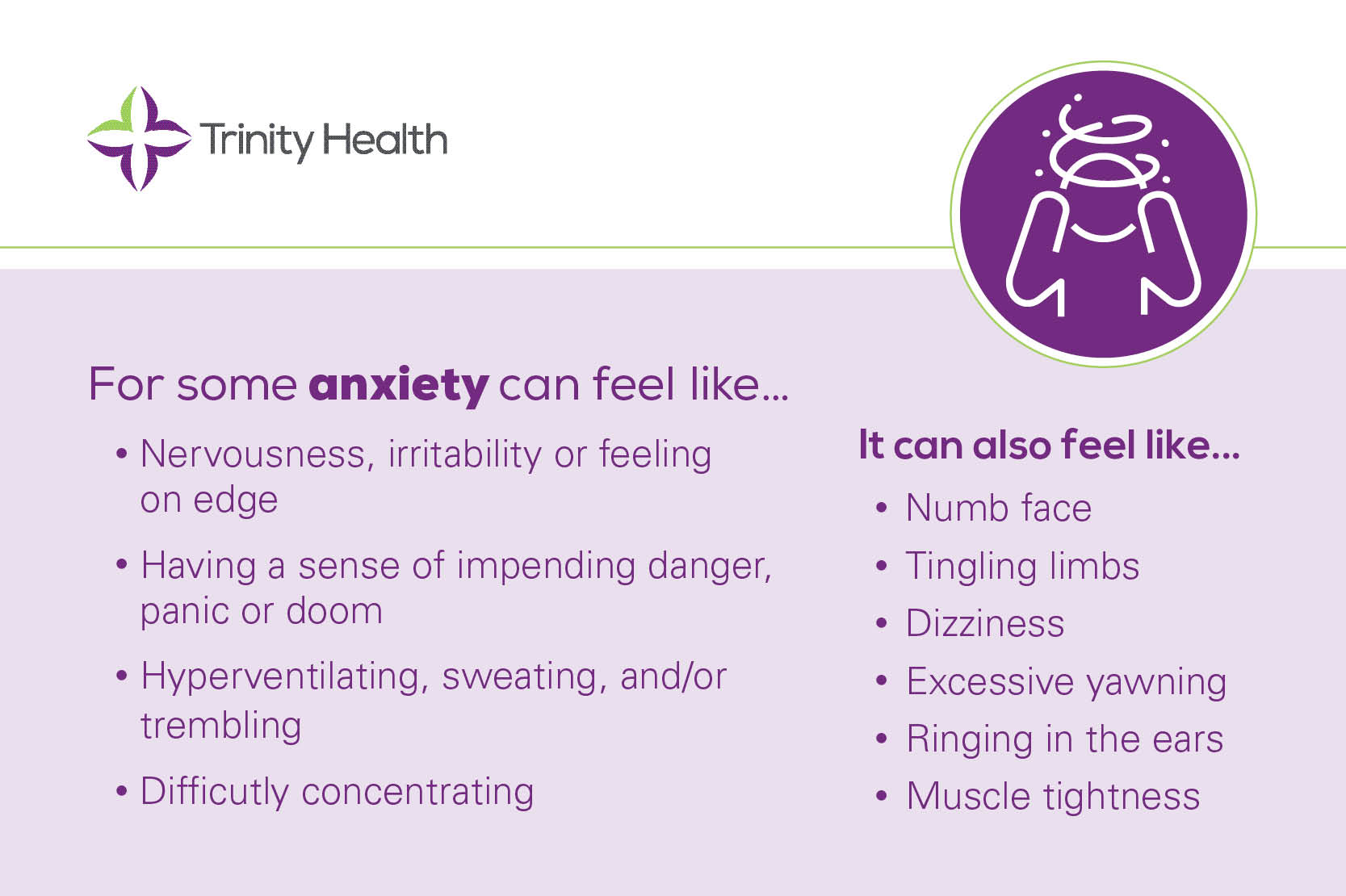Symptoms of Anxiety You Shouldn’t Ignore
January 24, 2025
Categories: Behavioral & Mental Health
Tags: Anxiety, Mental Health
When we think of anxiety, symptoms like excessive worrying, restlessness, or racing thoughts usually come to mind. “Anxiety is more than just worried thoughts. For many people, this experience is accompanied by physical symptoms that can be uncomfortable or disruptive,” said Elizabeth Block, M.D., psychiatrist and Medical Director for Child and Adolescent Outpatient Behavior Health and Huron Oaks Partial Hospital Program. “Recognition of these symptoms can help support the diagnosis and treatment of anxiety disorders.”
While these are common indicators, anxiety can manifest in surprising and less obvious ways that may be overlooked. Understanding these uncommon symptoms is important to recognize anxiety’s impact and seek appropriate help.
Chronic Indigestion and Stomach Problems
While stress is commonly linked to digestive issues, anxiety can also cause unexplained stomach problems like bloating, cramping, or frequent nausea. Some people may experience Irritable Bowel Syndrome (IBS), a condition often exacerbated by anxiety, which includes symptoms like diarrhea, constipation, or abdominal discomfort.
Frequent Urination or Bladder Discomfort
Anxiety can affect the nervous system, triggering symptoms such as frequent urination or a constant urge to go, even when the bladder is empty. This symptom is not always associated with anxiety but is often linked to the body’s fight-or-flight response, where the body reacts as though it’s preparing for danger.
Derealization and Depersonalization
Some individuals with anxiety experience dissociative symptoms like derealization or depersonalization. Derealization involves a feeling that the world around you isn’t real or feels distant, while depersonalization is the sensation of being detached from your body or thoughts. These feelings can be disorienting and frightening, often leading people to believe they are losing control or going “crazy.”
Skin Conditions
Chronic anxiety can also manifest through physical changes in the skin. People with anxiety might experience unexplained rashes, itching, or redness. Hives and eczema flare-ups can be aggravated by stress and anxiety, even when there’s no physical allergen triggering them.
Sudden Intolerance to Noise
While everyone finds loud noises irritating at times, individuals with anxiety may develop heightened sensitivity to noise, even to sounds that were previously tolerable. This condition, called hyperacusis, can cause anxiety attacks in noisy environments and make it difficult for the person to function in everyday situations.
Memory Problems and Forgetfulness
Anxiety is often associated with mental fog and forgetfulness. When the mind is overwhelmed with worry and stress, it becomes difficult to retain information or stay organized. This symptom may be confused with other cognitive issues, but it’s often a sign that anxiety is interfering with cognitive function.
Cold Hands or Feet
Poor circulation in the extremities is another uncommon symptom of anxiety. During heightened stress or anxiety, blood flow is redirected from the hands and feet to the larger muscles, preparing the body for a “fight or flight” response. As a result, people may experience cold hands or feet even in warm environments.
Anxiety can show up in ways that may not immediately seem connected to mental health. If you’re experiencing any of these less common symptoms and they persist over time, it’s worth exploring whether anxiety could be the underlying cause. Identifying these signs early can help you seek effective treatment and better manage anxiety before it becomes overwhelming.
Put your mental health first. If you are struggling with anxiety, depression or any behavioral health disorder, we can help.
This blog was medically reviewed by a Trinity Health provider.





